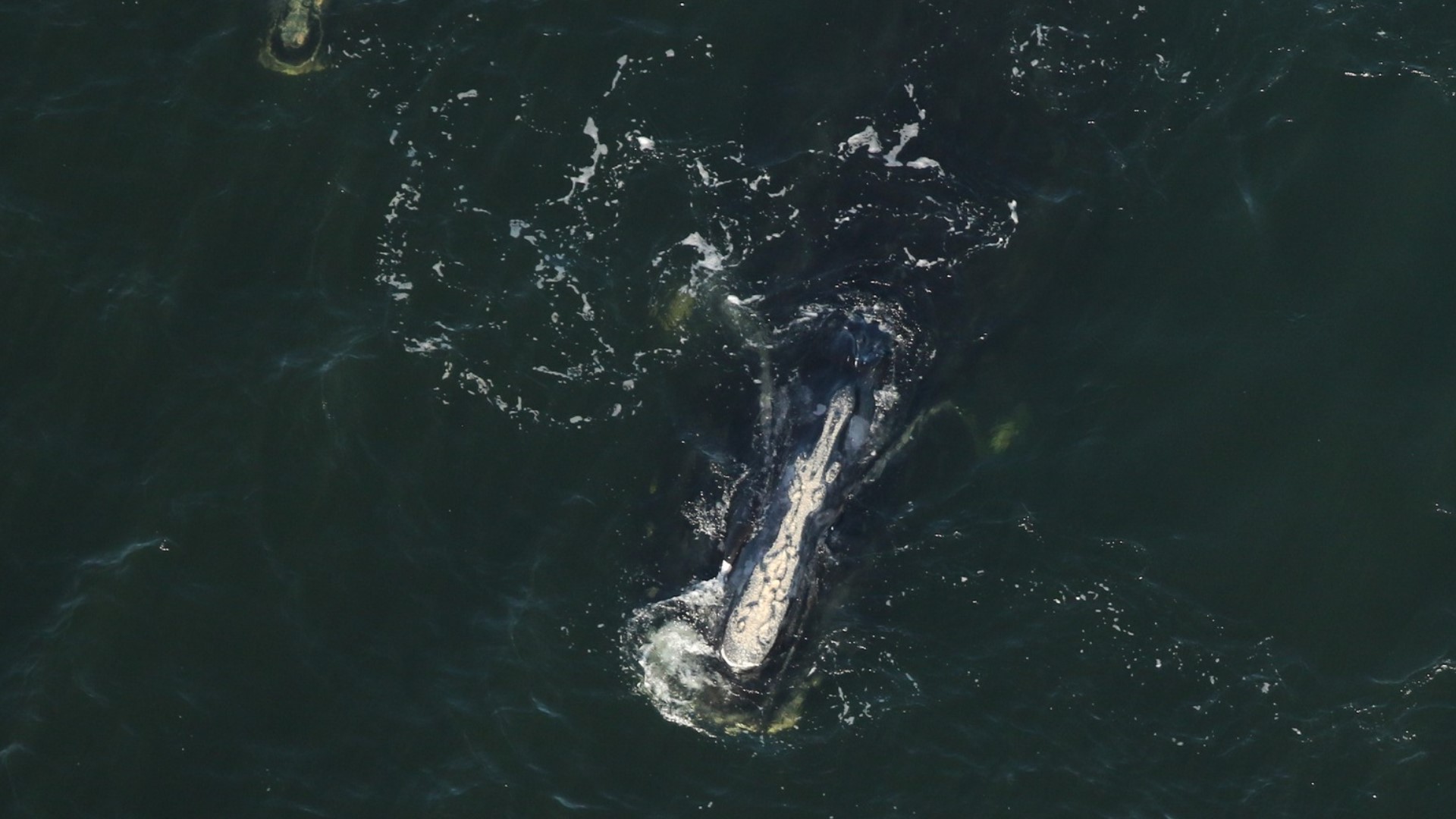JACKSONVILLE, Fla. — In recent weeks, there have been multiple sightings of North Atlantic right whales with calves along the First Coast.
A notable sighting occurred on Saturday, Jan. 27, when the Florida Fish and Wildlife Conservation Commission's (FWC) aerial survey team photographed a mother-calf pair of right whales 14 miles off Ponte Vedra Beach.
Another sighting involved a 1-year-old right whale off St. Augustine Beach on Wednesday, Jan. 24, bringing attention to the fragility of the species.
Sara Ellis, senior researcher at the Marineland Right Whale Project, emphasized the significance of these sightings, shedding light on the perilously low population of North Atlantic right whales.
Ellis explained, "The North Atlantic right whales come down to the waters of the southeast mainly to have their babies. The thing with these whales is there are very few of them; they are highly endangered, with only about 356 right whales."
Out of this small population, approximately 70 mothers are capable of giving birth. However, in some years, there have been instances of zero calf births offshore.
Despite protective measures, these whales face human-induced threats in local waters.
Ellis discussed a distressing incident involving whale calves, stating, "Of those 16 that were born, one has already been hit by a propeller, displaying visible scars." To address this issue, it is crucial to report whale sightings promptly, not only to track population numbers but also to alert local sailors to their presence.
Areas such as Flagler Beach and locations between Ponte Vedra and Daytona Beach provide opportunities for the public to spot whales from the shore. To facilitate timely reporting, the public is encouraged to call the hotline at 1-888-97-WHALE (1-888-979-4253).
Ellis emphasized the importance of this reporting system, stating, "If the public sees a whale, they have to call the hotline. What happens then is our scientists will go there, verify it's a right whale. With our research permit, we can fly a drone and identify the animal."
This coordinated effort aims to safeguard the North Atlantic right whale population and minimize the risks they face in their critical calving grounds.

